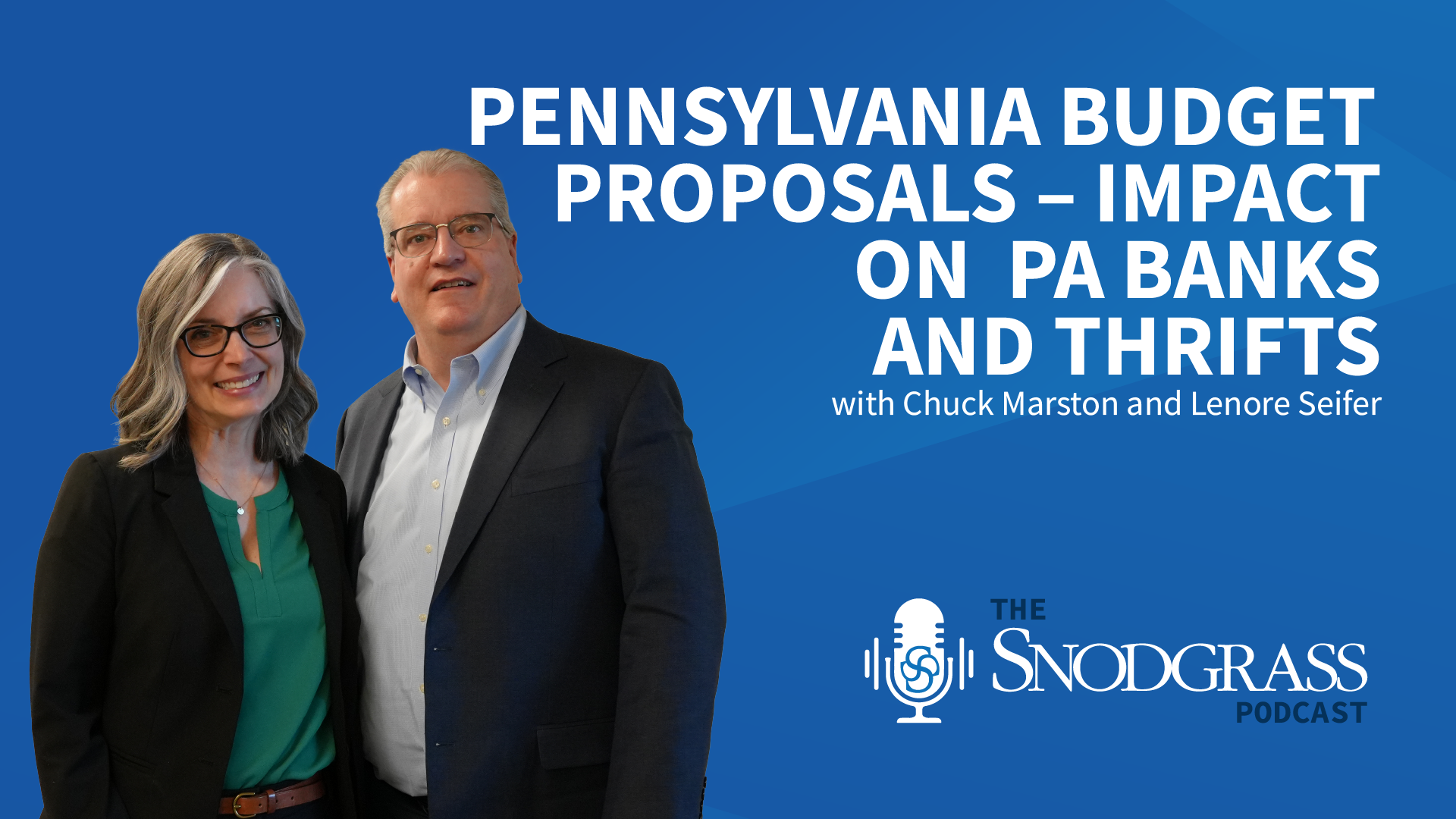Consumer Financial Protection Bureau (CFPB) Finalizes Rule to Remove Medical Bills from Credit Reports
The CFPB said the rule will increase privacy protections and prevent debt collectors from using the credit reporting system to coerce people to pay bills they do not owe. The CFPB has found that medical debts provide little predictive value to lenders about borrowers’ ability to repay other debts, and consumers frequently report receiving inaccurate bills or being asked to pay bills that should have been covered by insurance or financial assistance programs. The CFPB’s final rule brings regulations in line with Congress’s decision to safeguard consumers’ privacy by restricting lenders from obtaining or using medical information, including information about medical debts. Federal financial regulators later created an exception to this restriction, allowing creditors to consider medical debts. This carveout has enabled debt collectors to use the credit reporting system to coerce payments from patients for inaccurate or false medical bills. The amendments to Regulation V will become effective 60 days after the final rule is published in the Federal Register. |
Office of the Comptroller of the Currency (OCC) and Fed Adjust Civil Money Penalty (CMP) Maximums for 2025
The Federal Reserve Board (FRB) published [90 FR 2607] in the Federal Register a similar notice adjusting the maximum CMP’s for 2025 for violations by banks and holding companies for which the Federal Reserve System is their primary federal regulator. |
CFPB Adds Electronic Fund Transfer (EFT) Frequently Asked Questions (FAQs) on Tips
|
Financial Crimes Enforcement Network (FinCEN) Updates Alert on Beneficial Ownership Information (BOI) Reporting
Although various reports have suggested that the Supreme Court action would allow FinCEN to again require entities subject to the regulation to file reports, FinCEN’s Alert notes a separate nationwide order issued by a different federal judge in Texas (Smith v. U.S. Department of the Treasury) still remains in place, and reporting companies are not currently required to file BOI with FinCEN despite the Supreme Court’s action in Texas Top Cop Shop. Reporting companies also are not subject to liability if they fail to file this information while the Smith order remains in force. However, reporting companies may continue to voluntarily submit BOI reports. |
Agencies Announce Second Outreach Meeting on Regulations Review
|
Terminations and a Director Nomination at the CFPB
The reported firings were announced as President Trump nominated Jonathan McKernan to be the next director of the Bureau, replacing Russell Vought, who was previously named acting director. Mr. McKernan was previously on the board of the FDIC before resigning earlier this week. Previously, he was a counsel to |
The Department of Housing and Urban Development (HUD) Launches Department of Government Efficiency (DOGE) Task Force
|
Interactive Suspicious Activity Reporting (SAR) Statistics Updated with 2024 Data
|
OCC Stress Test Scenarios Released
The supervisory scenarios include baseline and severely adverse scenarios. Covered institutions are required to use the scenarios to conduct stress tests. The results of the company-run stress tests provide the OCC with forward-looking information used in bank supervision and assist the agency in assessing a covered institution’s risk profile and capital adequacy. The 2025 scenario and background information can be found on the OCC’s Dodd-Frank Act Stress Test (Company Run) page. |
Barr Speech on Regulation and Supervision Risks and Challenges
Barr addressed seven specific risks, saying that each will continue to be a risk in either the near- or long-term:
|
Reminder on Nationwide Multi-State Licensing System (NMLS) Fee Increases
|
Financial Action Tast Force (FATF) Identifies Countries with AML/CFT/CPF Deficiencies
On February 21, 2025, the FATF added Laos and Nepal to its list of Jurisdictions Under Increased Monitoring and removed the Philippines from that list. The FATF’s list of High-Risk Jurisdictions Subject to a Call for Action remains the same, with Iran, the Democratic People’s Republic of Korea (DPRK), and Burma subject to calls for action. Specifically, the FATF continues to call on jurisdictions to apply countermeasures on Iran and DPRK. Burma remains subject to the application of enhanced due diligence, but not countermeasures. |
CFPB Drops Five Major Lawsuits
|
FDIC Withdraws Four Proposed Rules
The FDIC is withdrawing these Notices of Proposed Rulemaking because it no longer intends to issue final rules with respect to these proposals. If the FDIC pursues regulatory action on these matters in the future, it will do so by publishing new proposed rules or other issuances consistent with the requirements of the Administrative Procedure Act. |
FDIC Postpones Compliance Date for Sections of Part 328 Rule
This delay does not apply to the other amendments made by the final rule to subpart A, such that compliance for those requirements remains unchanged and is required by May 1, 2025. |
Office of Foreign Assets Control (OFAC) Issues Venezuela General License and Adds a Designation and FAQ
Additionally, OFAC has updated its Specially Designated Nationals and Blocked Persons (SDN) List, designating an Iranian national under its Counter-narcotics sanctions program. |
Bureau Extends Comment Period on Advance Notice of Proposed Rulemaking (ANPR)
|
OCC Rescinds Issuances Addressing Some Crypto-Asset Activities
The OCC also withdrew from two interagency statements as they apply to national banks and federal savings associations—the “Joint Statement on Crypto-Asset Risks to Banking Organizations” (January 3, 2023), and the “Joint Statement on Liquidity Risks to Banking Organizations Resulting from Crypto-Asset Market Vulnerabilities” (February 23, 2023) (together, the interagency statements). These actions are intended to reduce burden, encourage responsible innovation, and enhance transparency. The OCC will examine the activities described in IL 1170 (addressing crypto-asset custody services), 1172 (addressing holding deposits that serve as reserves backing stablecoins), and 1174 (addressing the use of stablecoins and distributed ledger technology to facilitate payments) as part of its ongoing supervisory process. As with all activities, banks must conduct crypto-asset activities in a safe, sound, and fair manner, in compliance with applicable law. New activities should be developed and implemented consistently with sound risk management practices and alignment with banks’ overall business plans and strategies. |
Senate Passes Disapproval Resolution on CFPB Rule
The House of Representatives has introduced a related bill, H.J.Res. 64, which has been referred to committee. If the House resolution is passed, and the President approves the joint resolution, the CFPB rule will be nullified, and the Bureau will not be able to issue a substantially similar rule in the future. The rule in question established the CFPB’s supervisory authority over nonbank covered persons that are larger participants in a market for “general-use digital consumer payment applications.” Included are providers of funds transfer and payment wallet functionalities through digital payment applications for consumers’ general use in making payments to other persons for personal, family, or household purposes. Examples include consumer financial products and services that are commonly described as “digital wallets,” “payment apps,” “funds transfer apps,” “peer-to-peer payment apps,” “person-to-person payment apps,” “P2P apps,” and the like. |
Money Services Businesses (MSBs) on Southwest Border Get Geographic Targeting Order (GTO)
The terms of the GTO are effective beginning 30 days after the date on which the order is published in the Federal Register. The terms are effective for 179 days thereafter. The order covers the following ZIP codes across seven counties in California and Texas:
|
FDIC Formally Withdraws Proposed Rules
|
FinCEN Removes Beneficial Ownership Reporting Requirements for U.S. Companies and U.S. Persons, Sets New Deadlines for Foreign Companies
In that interim final rule, FinCEN revises the definition of “reporting company” in its implementing regulations to mean only those entities that are formed under the law of a foreign country and that have registered to do business in any U.S. State or Tribal jurisdiction by the filing of a document with a secretary of state or similar office (formerly known as “foreign reporting companies”). FinCEN also exempts entities previously known as “domestic reporting companies” from BOI reporting requirements. Thus, through this interim final rule, all entities created in the United States — including those previously known as “domestic reporting companies” — and their beneficial owners will be exempt from the requirement to report BOI to FinCEN. Foreign entities that meet the new definition of a “reporting company” and do not qualify for an exemption from the reporting requirements must report their BOI to FinCEN under new deadlines, detailed below. Upon the publication of the interim final rule, the following deadlines apply for foreign entities that are reporting companies:
FinCEN is accepting comments on this interim final rule and intends to finalize the rule this year. |
OCC Ends Exams for Reputation Risk
“The OCC has never used reputation risk as a catch-all justification for supervisory action. Focusing future examination activities on more transparent risk areas improves public confidence in the OCC’s supervisory process and makes clear that the OCC has not and does not make business decisions for banks,” said Acting Comptroller of the Currency, Rodney E. Hood. The removal of references to reputation risk from OCC handbooks and guidance issuances does not alter the OCC’s expectation that banks remain diligent and adhere to prudent risk management practices across all other risk areas. The OCC expects to complete its efforts to update its public documents in the coming weeks. |



